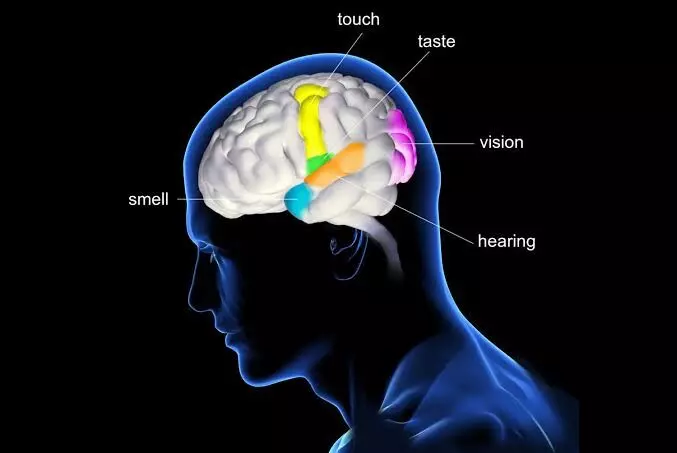World Brain Tumour Day: How tumours might quietly disrupt our world—one sense at a time
The human brain translates signals from the world into sight, sound, smell, taste and touch. Different lobes handle different sensory information
By Anoushka Caroline Williams
World Brain Tumour Day: How tumours might quietly disrupt our world—one sense at a time
Hyderabad: Brain tumours are often spoken of in terms of severity, surgery and survival. But less talked about is how they can quietly alter the way we experience the world—through smell, hearing, vision, touch and even taste.
On World Brain Tumour Day, it’s important to understand not just the diagnosis but the lived experience of those navigating sensory disruption.
How the brain processes senses
The human brain translates signals from the world into sight, sound, smell, taste and touch. Different lobes handle different sensory information:
Occipital lobe – vision
Temporal lobe – hearing and memory
Parietal lobe – touch and spatial awareness
Frontal lobe – motor control and cognition
Olfactory bulb and cortex – smell
Insular cortex – taste and interoception
When a tumour develops in or presses against these regions, it can interfere with normal functioning. The result is often misinterpreted symptoms—which can delay diagnosis.
When smells disappear or distort
For many, the first sign of something unusual is losing the sense of smell (anosmia) or experiencing phantom odours (phantosmia). A patient might complain of constantly smelling burning rubber, rotting food, or chemicals.
Dr Anamika Kannan, consultant neurologist at Apollo Hospitals, explained to NewsMeter that smell is processed in the olfactory bulb, located near the frontal lobe. Tumours in this area can cause distorted or absent smell perception.
Because smell is deeply linked to memory and emotion, such changes can also affect mental health.
Vision changes that go beyond blurriness
Patients with tumours near the optic nerve or occipital lobe often report:
Blind spots or “tunnel vision”
Double vision
Flickering lights or coloured auras
Difficulty reading or focusing
These symptoms may resemble migraines or eye strain, making early detection difficult.
In some cases, patients don’t even realise they’ve lost part of their field of vision, says Dr Nihaar Mishra, a neuro-ophthalmologist. It’s often noticed by family or during driving tests.
The sound of tumours
Brain tumours in the temporal lobe or brainstem can affect hearing. This may present as:
Persistent ringing (tinnitus)
Loss of hearing in one ear
Difficulty following conversations
Auditory hallucinations
One patient described it as “being underwater in a silent storm.” These symptoms are especially common in acoustic neuromas—benign tumours affecting the nerve responsible for hearing and balance.
Altered touch and body awareness
Tumours in the parietal lobe can impact the sense of touch or spatial awareness. Patients might experience:
Numbness in one side of the body
Trouble locating limbs without looking
Oversensitivity to pain or pressure
A sense of detachment from parts of the body
These symptoms are subtle and can mimic stroke, arthritis or anxiety—often leading to misdiagnosis.
Taste and appetite shifts
Though less common, taste changes can occur if the insular cortex or brainstem is affected. Some patients report metallic tastes, bitterness or complete loss of taste (ageusia). Others experience cravings or aversions they never had before.
Sudden dislike for favourite foods or the inability to taste sweetness may be neurological, says Dr Maanya Rao, neuro-oncology specialist at HCG Cancer Centre, Hyderabad. It’s important not to dismiss it as stress or a hormonal imbalance.
The emotional and psychological toll
Changes in sensory input don’t just affect physical perception — they also have emotional consequences. Smell and taste are closely tied to appetite, comfort, and memory. Vision and hearing are core to communication. Losing these can lead to:
Isolation
Irritability
Depression or anxiety
Difficulty adjusting to treatment and therapy
Sensory symptoms are early clues
One of the biggest challenges with brain tumours is that early symptoms are often vague — a mild vision change, occasional dizziness, or a funny smell. Many people delay seeing a doctor until symptoms worsen.
Sensory disturbances can be a crucial early warning sign, emphasises Dr Kannan. Awareness is key. If something feels off, get it checked.
Toward a sensory-aware approach
India sees over 40,000 new cases of brain tumours each year, with many going undiagnosed for too long. A more sensory-aware diagnostic approach — asking patients detailed questions about subtle changes in smell, hearing, or touch — could lead to earlier detection and better outcomes.
On World Brain Tumour Day, it’s time we recognise that the brain is not just the seat of thought, but of experience. When a tumour alters the senses, it alters the very way someone lives their life.